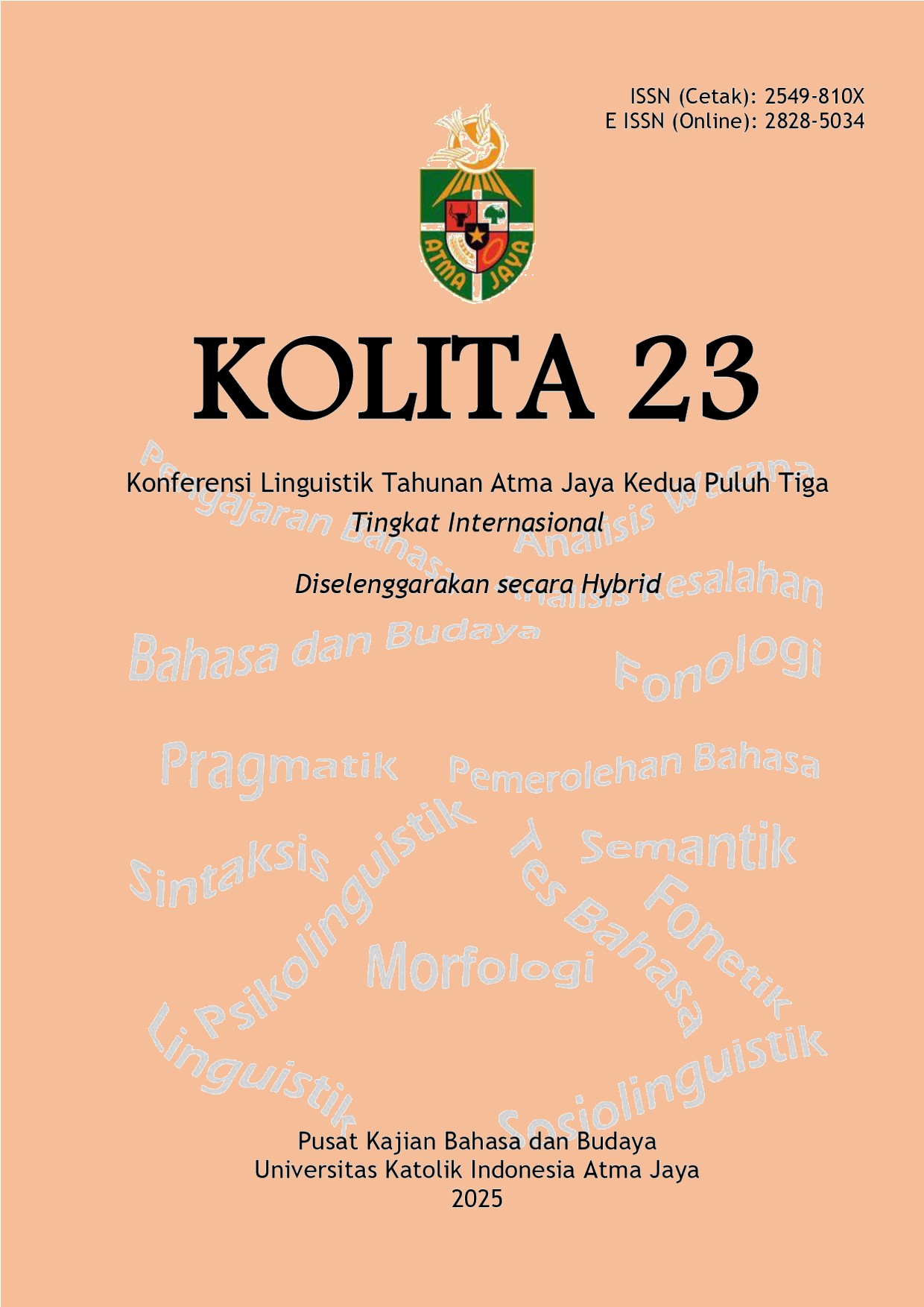THE USE OF “MAGHRIB” AS A FORM OF SKIN COLOR DISCRIMINATION
DOI:
https://doi.org/10.25170/kolita.v23i23.7154Kata Kunci:
magrib, metaphor, colorism, discrimination, media social, TikTokAbstrak
Language often experiences shifts in meaning that can affect social and cultural perceptions. One phenomenon that occurs in Indonesian society is the metaphorical use of “magrib.” Denotatively, “magrib” refers to the time of prayer in Islam that begins at sunset. However, its meaning has evolved, showing how language can reflect social changes and biases. In the past, it was used as a metaphor to describe someone who is nearing the end of their life. In the digital context, especially on TikTok, “magrib” is now often used as a metaphor for dark skin color with negative connotations. This study aims to understand how “magrib” is used as a form of skin color discrimination and its impact on social perceptions. Using descriptive qualitative methods, this research analyzes comments on TikTok that use “magrib” in the context of skin color. Lakoff and Johnson's (1980) conceptual metaphor theory and Newman's discrimination framework were used to examine how these metaphors construct and reinforce social bias. The results show that “magrib” is often used in speech that demeans dark-skinned individuals, reinforcing colorism and discriminatory beauty standards. Furthermore, this phenomenon contributes to social exclusion as well as psychological impacts for targeted individuals. This research also emphasizes how discriminatory language can normalize bias, making it more entrenched in society. In addition, this research highlights the importance of social and linguistic awareness in the use of language on social media as well as the need for education on the impact of skin color-based discrimination to create a more inclusive communication environment. The results show that “magrib” is used as a metaphor for black skin with the purpose of demeaning it, reflecting beauty standards that are biased towards fair skin. Moreover, this shift in meaning, in the digital context, has a strong role in skin color discrimination or colorism. Therefore, raising awareness and encouraging the use of language that is appropriate to its meaning is very important in reducing discriminatory narratives.






